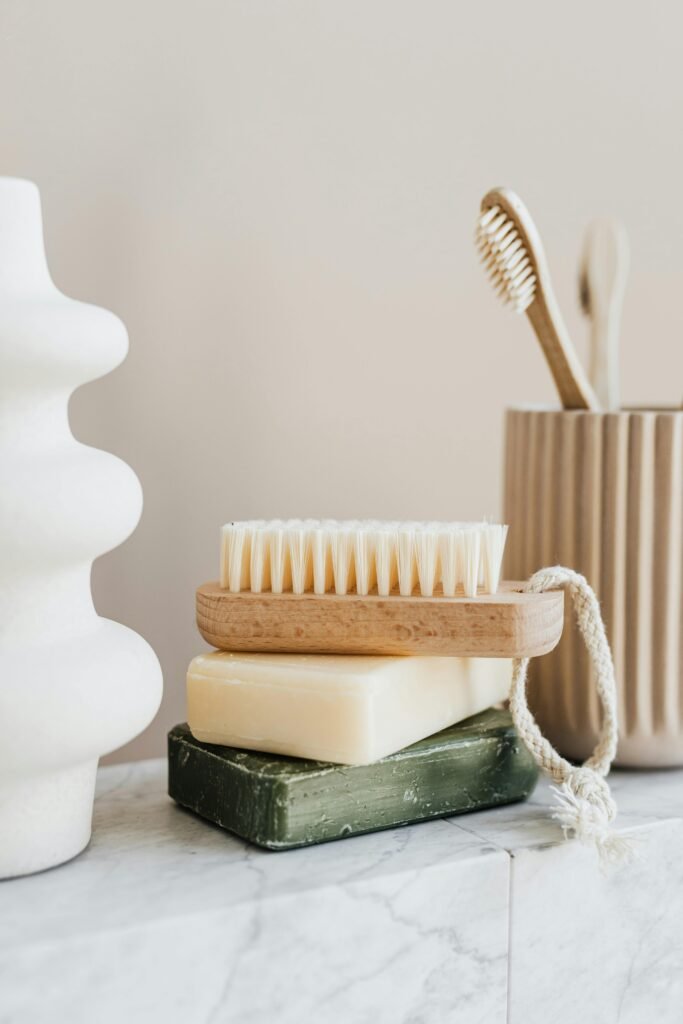In times of dental emergencies, knowing how to handle the situation is crucial to ensuring the best possible outcome. From sudden toothaches to knocked-out teeth, having a few essential tips up your sleeve can save you from unnecessary pain and stress. This article will guide you through quick steps for common emergency dental issues, equipping you with the knowledge and confidence needed to tackle unexpected oral problems with ease.
Preparing for Emergency Dental Care
Nobody wants to deal with a dental emergency, but being prepared can make all the difference. By taking a few simple steps, you can ensure that you are ready to handle any dental emergency that comes your way.
Finding an Emergency Dentist
The first step in preparing for emergency dental care is to find an emergency dentist near you. Take the time to research and locate a dentist who specializes in providing immediate attention to dental emergencies. You can ask for recommendations from friends, family, or your regular dentist. Having the contact information of an emergency dentist on hand will save you time and stress if an emergency arises.
Knowing the Dental Emergency Hotline
In addition to finding an emergency dentist, it’s important to know the dental emergency hotline in your area. This hotline is typically available 24/7 and can provide you with crucial information and guidance in the event of a dental emergency. Save the hotline number in your phone or write it down in a convenient place so you can access it quickly when needed.
Keeping an Emergency Dental Kit Ready
It’s always a good idea to have an emergency dental kit at home. This kit should include basic items such as cotton swabs, dental floss, sterile gauze, a small container with a lid, and pain relievers recommended by your dentist. By keeping these supplies readily available, you’ll be better prepared for any dental emergency that may occur.
Dealing with Toothaches
Toothaches can be excruciatingly painful, but there are some steps you can take to alleviate the discomfort while you wait for professional dental care.
Rinsing the Mouth with Warm Saltwater
One of the first things you can try when experiencing a toothache is rinsing your mouth with warm saltwater. Dissolve half a teaspoon of salt in eight ounces of warm water and swish the solution around your mouth for about 30 seconds before spitting it out. This can help reduce inflammation and provide temporary relief from the pain.
Using Dental Floss to Remove Food Particles
Sometimes, toothaches may be caused by food particles that have become lodged between your teeth. Gently flossing the affected area can help dislodge any debris and provide relief from the pain. Be sure to use a slow and gentle back-and-forth motion to avoid causing further irritation to your gums.
Applying a Cold Compress to Reduce Swelling
If you notice swelling around the painful tooth or in your face, applying a cold compress can help reduce the inflammation. Wrap a bag of ice or a cold pack in a thin cloth and hold it against the affected area for 15 minutes. Repeat this process every few hours to help numb the pain and reduce swelling.

This image is property of images.pexels.com.
Handling a Knocked-Out Tooth
Having a tooth knocked out can be a frightening experience, but staying calm and taking quick action can potentially save the tooth.
Locating the Tooth and Handling it Carefully
If your tooth is knocked out, locate it immediately and handle it carefully by the crown, avoiding the roots. Rinse it gently with water to remove any dirt or debris, but be careful not to scrub or remove any attached tissue fragments.
Rinsing the Tooth Gently
If the tooth is dirty or soiled, you can gently rinse it with milk or a saline solution to keep it moist. It’s important not to let the tooth dry out, as this can reduce the chances of successful reimplantation.
Trying to Reinsert the Tooth in its Socket
If possible, try to reinsert the tooth back into its socket. Hold it in place by gently biting down on a clean cloth or gauze. If reinsertion is not possible, place the tooth in a container of milk or saliva and seek immediate professional dental care. Time is of the essence when it comes to saving a knocked-out tooth, so acting quickly is crucial.
Managing a Broken or Chipped Tooth
A broken or chipped tooth can be both painful and concerning. While waiting for professional dental assistance, there are steps you can take to manage the situation.
Rinsing the Mouth and Tooth Fragment
If you have broken or chipped a tooth, carefully rinse your mouth with warm water to clean the area. Additionally, rinse any tooth fragments you may have to ensure they remain as clean as possible.
Using Dental Wax to Cover Sharp Edges
If the broken or chipped tooth has created rough or sharp edges that are causing discomfort, you can temporarily cover these areas with dental wax. Dental wax provides a protective barrier and helps prevent further irritation and injury until you can see a dentist.
Seeking Immediate Dental Care
While some broken or chipped teeth may not be accompanied by pain, it’s important to seek immediate dental care to assess the damage and prevent any further complications. A dental professional will be able to determine the best course of action to restore your tooth and alleviate any discomfort you may be experiencing.

This image is property of images.pexels.com.
Dealing with Dental Abscesses or Infections
Dental abscesses or infections require prompt attention to prevent the spread of infection and relieve pain.
Rinsing the Mouth with Mild Saltwater
To help alleviate the discomfort caused by a dental abscess or infection, rinse your mouth with mild saltwater. Dissolve half a teaspoon of salt in eight ounces of warm water and gently swish it around your mouth for about a minute before spitting it out. This can help draw out the pus and reduce inflammation.
Using Over-the-Counter Pain Relievers with Dentist’s Approval
Over-the-counter pain relievers, such as ibuprofen or acetaminophen, can provide temporary relief from the pain caused by dental abscesses or infections. However, it’s important to consult with your dentist before taking any medication to ensure it won’t interfere with any prescribed treatment.
Seeking Prompt Dental Treatment
A dental abscess or infection requires professional dental treatment. Ignoring or delaying treatment can lead to more severe complications and spread of the infection. Contact your dentist immediately to schedule an appointment and discuss the best course of action.
Coping with a Lost Filling or Crown
If a filling or crown comes loose or falls out, it’s essential to take steps to protect your tooth until you can see your dentist.
Preserving the Filling or Crown
If you can locate the lost filling or crown, keep it safe by placing it in a clean container. This will allow your dentist to potentially reattach it. Avoid trying to fix it yourself with household adhesives, as this can cause further damage.
Using Dental Cement or Temporary Filling Material
In the meantime, you can use dental cement or temporary filling material, available at most drugstores, to cover the affected tooth. This provides a temporary barrier and prevents sensitivity or pain. However, this is only a temporary solution, and it’s crucial to seek professional dental care to restore the filling or crown.
Avoiding Chewing on the Affected Tooth
To prevent further damage, avoid chewing on the affected tooth until you can see your dentist. Stick to soft foods that won’t place unnecessary stress on the tooth. Chewing on a compromised tooth can lead to more significant issues, so it’s important to take precautions.

This image is property of images.pexels.com.
Managing a Broken Denture
A broken denture can be a challenging situation, but there are steps you can take to address the problem until you can see a denture specialist.
Gathering the Broken Pieces
If your denture breaks, carefully gather all the broken pieces, making sure not to misplace any fragments. This will help the denture specialist assess the damage and determine the best course of action to repair it.
Using Denture Repair Kit or Adhesive
Certain drugstores carry denture repair kits or denture adhesives that can provide a temporary fix for minor breaks or cracks. Follow the instructions carefully, but keep in mind that these are temporary solutions. It’s crucial to schedule an appointment with a denture specialist to ensure a proper repair.
Contacting a Denture Specialist
Even if you manage to temporarily repair your denture, it’s important to reach out to a denture specialist for a long-term solution. Attempting to repair a denture yourself can lead to further damage, so seeking professional help is always the best course of action.
Handling a Soft Tissue Injury
Injuries to the soft tissues of the mouth can result in bleeding and discomfort. Knowing how to handle them can help you manage the situation until you can seek medical assistance if necessary.
Cleaning the Wound with Warm Water
If you have a soft tissue injury in your mouth, gently clean the area with warm water to remove any debris or blood. Rinse your mouth and the wound carefully to prevent infection.
Applying Gentle Pressure with Gauze
To control bleeding, apply gentle pressure to the injured area using a piece of sterile gauze or a damp cloth. Maintain this pressure for 10 to 15 minutes or until the bleeding stops. If the bleeding persists or is severe, seek medical help immediately.
Seeking Medical Help if Needed
If the soft tissue injury is severe, involves excessive bleeding, or is accompanied by other concerning symptoms, it’s important to seek medical help as soon as possible. Contact your healthcare provider or go to the nearest emergency room for proper evaluation and treatment.

This image is property of images.pexels.com.
Managing Jaw Pain or Dislocation
Jaw pain or dislocation can be a result of an injury or underlying condition. Taking immediate action is crucial in managing the pain and preventing further complications.
Applying a Cold Compress to Reduce Swelling
If you are experiencing jaw pain or swelling, applying a cold compress can help reduce the inflammation. Wrap a bag of ice or a cold pack in a thin cloth and hold it against the affected area for 15 minutes. This can help numb the pain and decrease swelling.
Avoiding Opening the Mouth Widely
To prevent further discomfort or potential injury, avoid opening your mouth too widely if you suspect a jaw dislocation or if it causes pain. Stick to eating soft or liquid foods and opt for smaller bites to minimize strain on the jaw joint.
Seeking Immediate Dental or Medical Assistance
If you are experiencing severe jaw pain, have difficulty closing or opening your mouth, or suspect a jaw dislocation, it’s crucial to seek immediate dental or medical assistance. Your dentist or a healthcare professional will be able to diagnose the cause of the pain and provide appropriate treatment.
Dealing with a Dental Emergency During COVID-19
Even during a pandemic, dental emergencies can still occur. Here are some steps to follow if you find yourself facing a dental emergency during COVID-19.
Calling the Emergency Dental Hotline for Instructions
If you experience a dental emergency during the COVID-19 pandemic, call the emergency dental hotline in your area for instructions. Dental professionals will provide you with guidance on how to proceed, including whether you need immediate treatment or if it can be postponed until it’s safer.
Practicing Good Infection Control Measures
In any dental emergency, it’s essential to prioritize infection control measures. Wash your hands thoroughly with soap and water before and after handling any dental equipment or touching your face. Additionally, avoid touching surfaces unnecessarily and maintain appropriate physical distancing when visiting a dental clinic.
Following Dental Clinic Protocols
When visiting a dental clinic for emergency care during the pandemic, it’s important to follow the protocols and guidelines set in place by the facility. This may include wearing a mask, having your temperature checked, or completing a health questionnaire. By adhering to the clinic’s guidelines, you’re not only protecting yourself but also the healthcare professionals and other patients.
By being prepared for dental emergencies and knowing how to handle them, you can minimize pain, prevent further damage, and ensure prompt treatment. Remember, it’s always best to seek professional dental care, even for minor emergencies, to ensure the best outcome for your oral health. Stay prepared and take the necessary steps to keep your smile bright and healthy.
